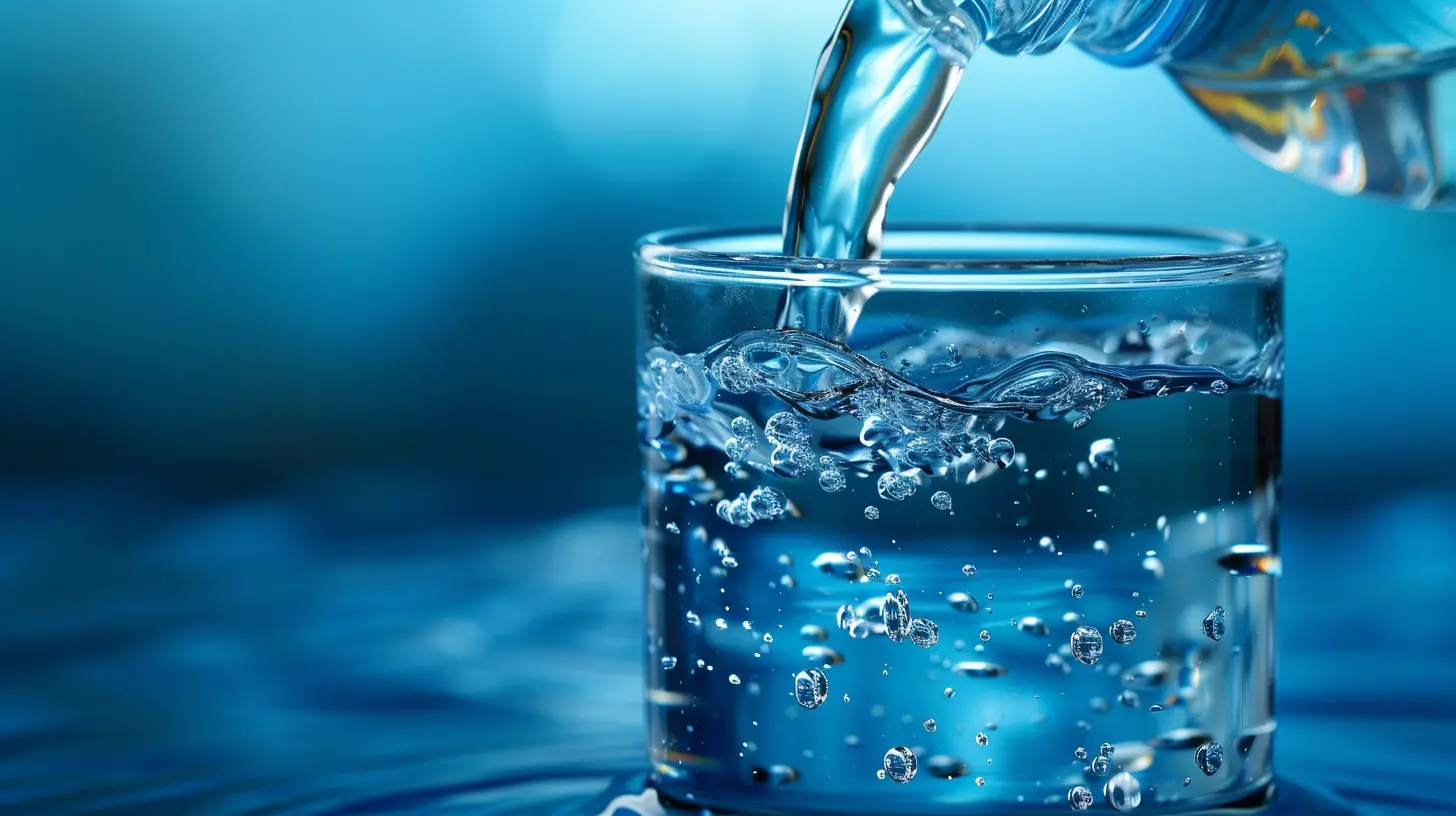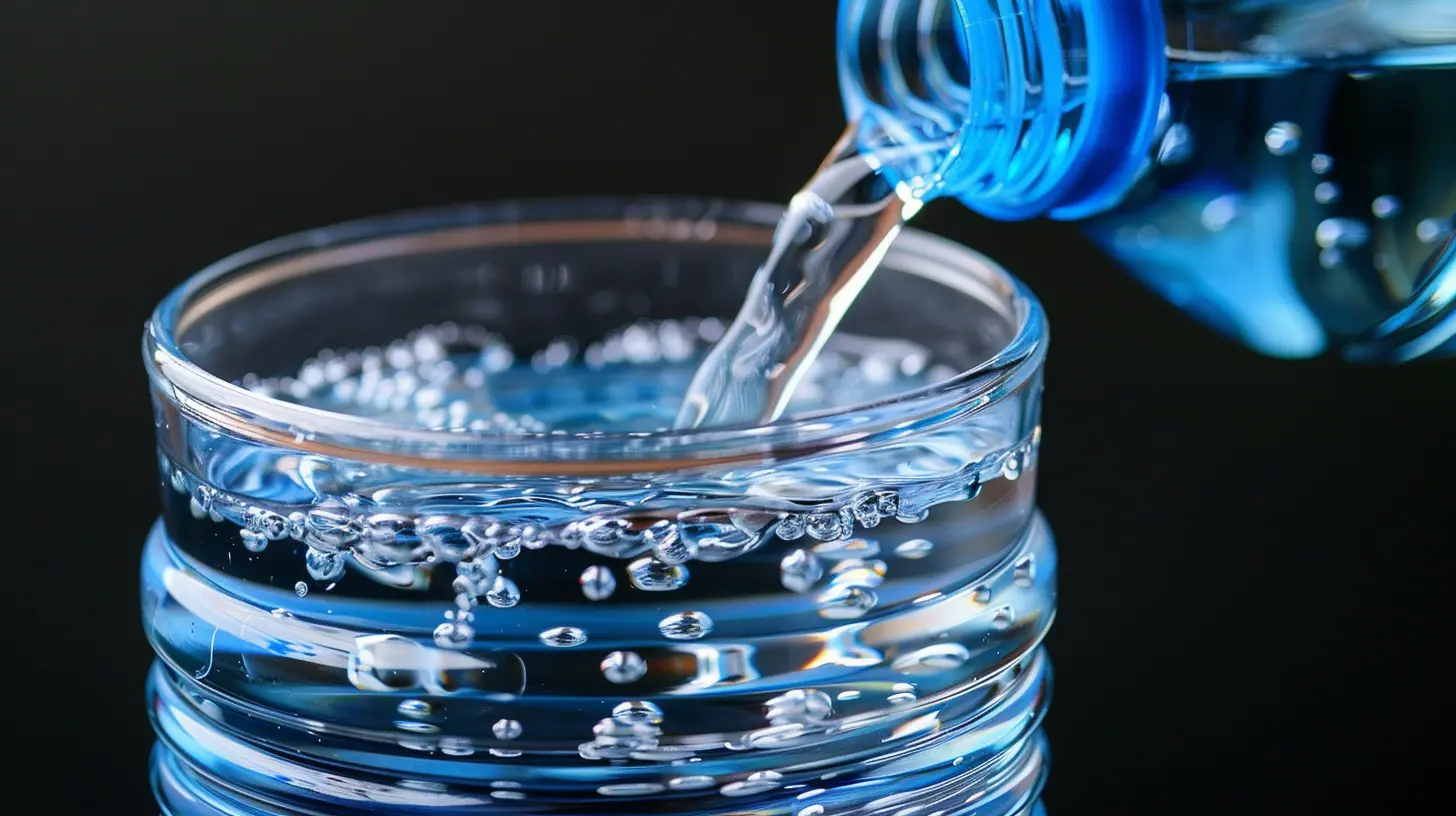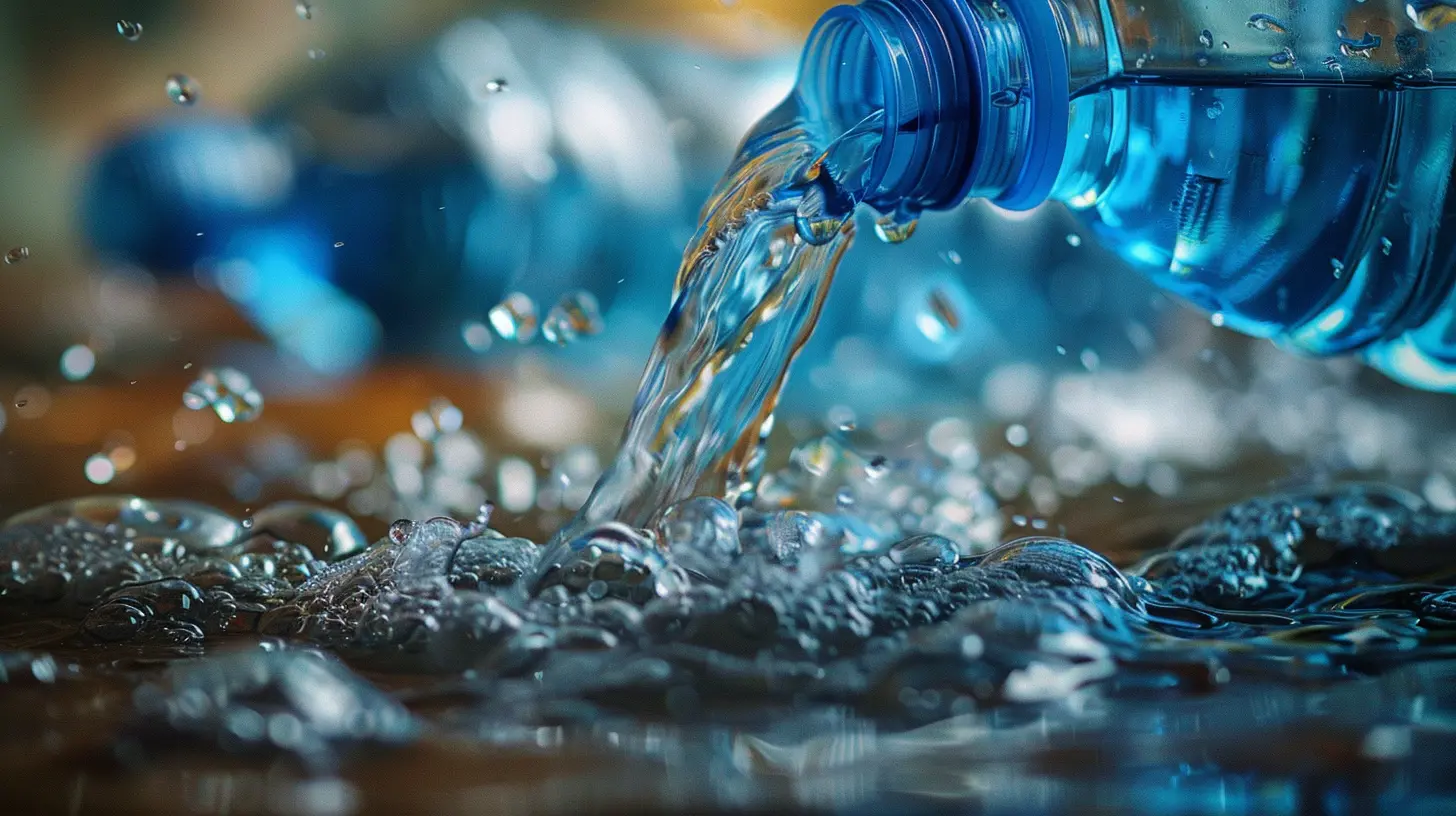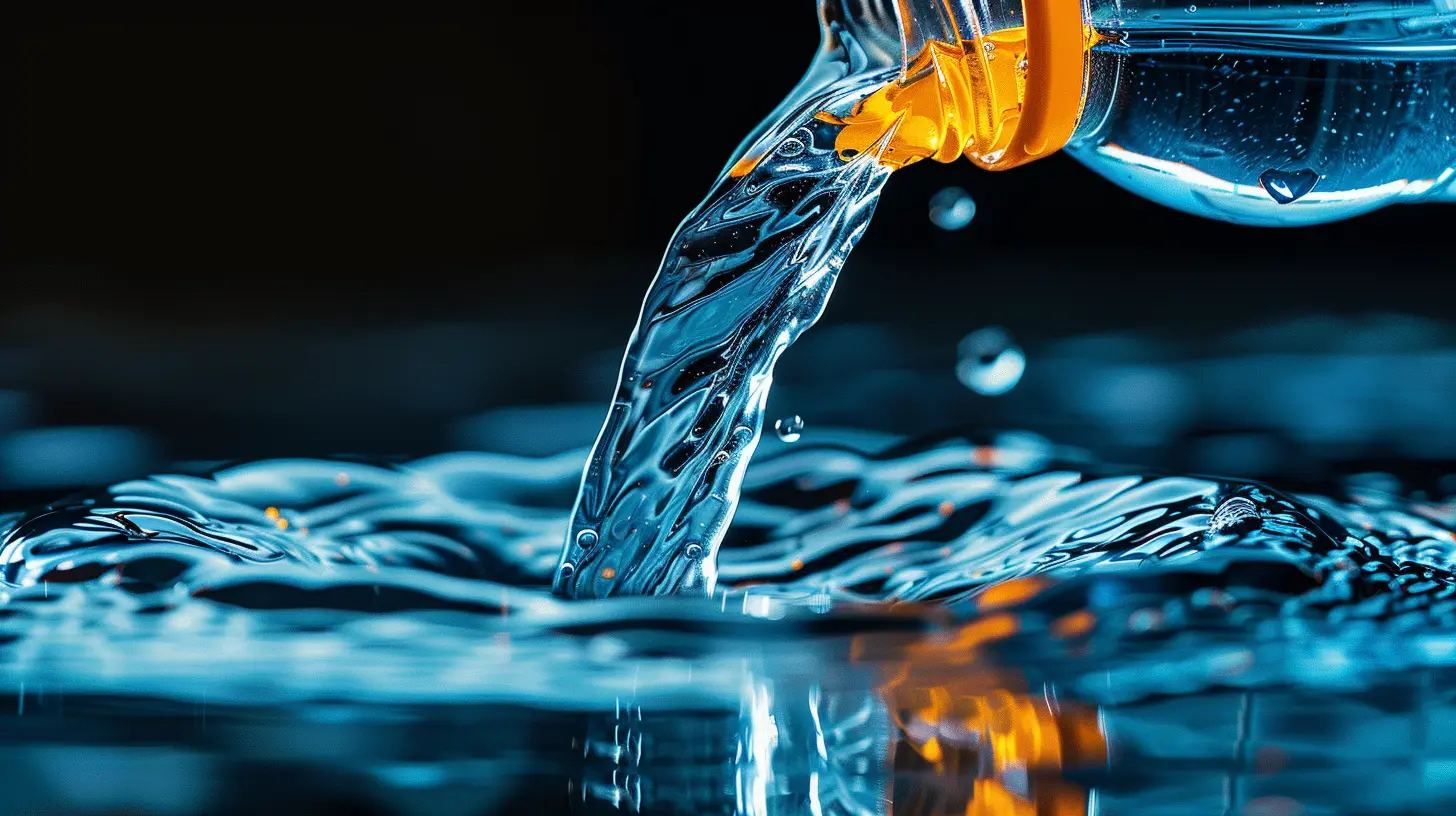Hydration and Exercise: Maximizing Performance Through Water Intake
6 September 2025
Staying hydrated isn't just about quenching your thirst—it's a game changer when it comes to exercise performance. Water fuels your body like premium gas fuels a sports car. Without enough of it, your energy, focus, and endurance take a hit. So, how much water do you really need? And when should you drink it for the best results? Let’s break it all down.
Why Hydration Matters in Exercise
Water makes up about 60% of your body weight, and every cell in your body relies on it to function properly. During physical activity, you sweat, lose fluids, and deplete electrolytes. Without proper hydration, your muscles cramp, your endurance drops, and your recovery slows.Think of your body as a high-performance engine. Without enough coolant (water), it overheats and struggles to perform. Dehydration isn’t just uncomfortable—it can be dangerous, leading to heat exhaustion or even heatstroke. 
The Science of Hydration and Performance
How Dehydration Affects Your Workout
Even a 1-2% loss of body water can negatively impact performance. Here’s what happens when you don’t drink enough water during exercise:- Decreased Strength and Endurance – Muscles require hydration to contract efficiently. Dehydration can make you feel weaker and more fatigued.
- Increased Heart Rate – When you’re low on fluids, your heart works harder to pump blood, making exercise feel more strenuous.
- Poor Thermoregulation – Sweat is your body’s cooling mechanism, but without enough water, sweating slows down, increasing the risk of overheating.
- Slower Recovery – Muscles need adequate hydration to repair and rebuild after exercise. Without it, soreness and stiffness can linger longer than necessary.
Hydration and Muscle Function
Water isn’t just about cooling down—it also plays a key role in muscle contraction. Muscles are roughly 75% water, and without proper hydration, they can’t function efficiently. This leads to cramps, reduced strength, and diminished endurance.
How Much Water Do You Really Need?
The amount of water you need depends on various factors like body size, activity level, temperature, and sweat rate. However, a general guideline is:- Before Exercise: Drink 16-20 ounces of water 2-3 hours before your workout.
- During Exercise: Sip 7-10 ounces every 10-20 minutes, especially if you’re sweating heavily.
- After Exercise: Rehydrate with 16-24 ounces per pound of body weight lost during exercise.
Thirst isn’t always the best indicator of hydration status. By the time you feel thirsty, you’re already slightly dehydrated. Instead, check the color of your urine—pale yellow means you're well-hydrated; dark yellow or amber means you need more water. 
Best Times to Hydrate for Maximum Performance
1. Pre-Workout Hydration
Hydrating before exercise ensures your muscles are primed and ready to go. A good strategy is to drink water consistently throughout the day rather than chugging large amounts right before your workout.2. During Your Workout
If you're doing short workouts (under 60 minutes), sipping water is usually enough. But for longer, intense sessions, especially in hot conditions, you may need an electrolyte drink to replace lost sodium and potassium.3. Post-Workout Hydration
Replenishing fluids after exercise is just as important as fueling up before. Drinking water and eating hydrating foods like watermelon, cucumber, and oranges can speed up recovery.Signs of Dehydration During Exercise
Your body gives you warning signs when you're dehydrated. Here are some red flags to watch out for:- Dry mouth and extreme thirst
- Fatigue and dizziness
- Headache or light-headedness
- Muscle cramps
- Dark yellow urine or infrequent urination
Ignoring these signs and continuing to push through can lead to heat exhaustion or even heatstroke—so listen to your body!
Water vs. Sports Drinks: Which One Do You Need?
Not all fluids are created equal. In most cases, plain water is enough to keep you hydrated. But there are situations where a sports drink might be beneficial.When to Stick with Water
- Low to moderate workouts under 60 minutes- Everyday hydration needs
- If you’re watching sugar intake
When to Use a Sports Drink
- High-intensity workouts lasting over an hour- Exercise in hot and humid conditions
- When you’re sweating excessively
Sports drinks contain electrolytes (sodium, potassium, and magnesium) that help maintain fluid balance. However, many are loaded with sugar, so be mindful of your choice.
Hydration Myths You Need to Stop Believing
Myth #1: You Need to Drink 8 Glasses of Water a Day
There's no magic number that fits everyone. Your water needs depend on your body size, activity level, and climate. Instead of aiming for a fixed number, let thirst and urine color guide you.Myth #2: Coffee and Tea Dehydrate You
While caffeine is a diuretic, moderate coffee or tea consumption won’t dehydrate you. In fact, they contribute to your daily fluid intake.Myth #3: You Can’t Drink Too Much Water
Overhydration, or hyponatremia, happens when you drink excessive amounts of water without replacing lost electrolytes. This dilutes sodium levels in your blood, causing dangerous health effects like nausea, confusion, and even seizures.Hydration Tips for Different Types of Workouts
For Strength Training
Water helps maintain energy levels for lifting weights. Drink 8-16 ounces before your session and sip throughout your workout to stay strong and avoid muscle fatigue.For Endurance Training (Running, Cycling, etc.)
Endurance athletes lose more fluids through sweat, so consistent hydration is key. Start hydrated, sip regularly, and refuel afterward with an electrolyte-rich drink if needed.For Yoga and Pilates
These workouts may not seem sweat-intensive, but staying hydrated helps with flexibility and joint health. Drink water before and after to keep your body feeling fluid and nimble.Final Thoughts
Hydration isn't something to take lightly—it's the foundation of peak performance. Whether you're lifting weights, running marathons, or just powering through a workout, keeping your water bottle handy can make all the difference. Remember, water fuels your muscles, sharpens your focus, and speeds up recovery. So the next time you're about to exercise, ask yourself: "Am I properly hydrated?" Your body will thank you for it!all images in this post were generated using AI tools
Category:
HydrationAuthor:

Laura Hudson
Discussion
rate this article
1 comments
Rivenheart Riggs
This article effectively highlights the crucial connection between hydration and exercise performance. It emphasizes that proper water intake not only enhances physical endurance but also supports recovery, underscoring the need for athletes to prioritize hydration strategies in their routines.
October 2, 2025 at 3:11 PM

Laura Hudson
Thank you for your insightful comment! I'm glad you found the connection between hydration and exercise performance valuable. Prioritizing hydration is indeed essential for athletes.


